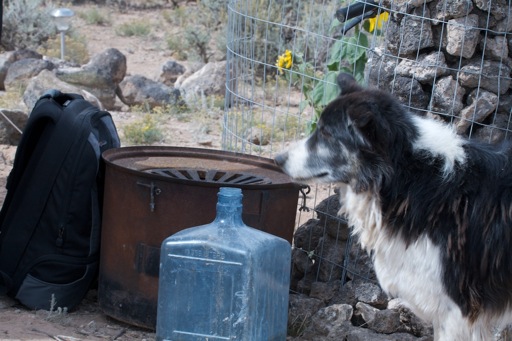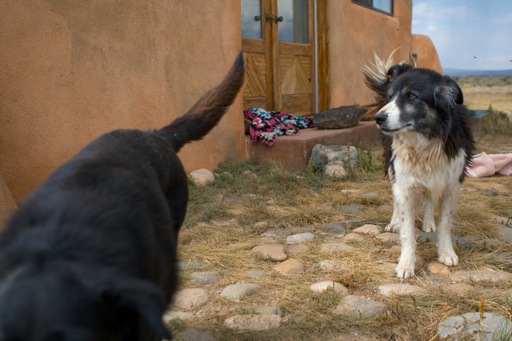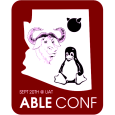 You’ve considered starting your own business–ExampleTech–and have pondered the initial investment, opportunity costs and personal risks. Here’s a brief financial primer on what you need to understand before taking the big leap, and key issues you’ll need to grok for after ExampleTech begins operations.
You’ve considered starting your own business–ExampleTech–and have pondered the initial investment, opportunity costs and personal risks. Here’s a brief financial primer on what you need to understand before taking the big leap, and key issues you’ll need to grok for after ExampleTech begins operations.
My big leap is OpenRain, for which I manage financial planning and performance amongst a bagillion other things, so I frequently receive questions on the financial aspects of forming and operating a company. This failure-based example assumes ExampleTech uses accrual accounting as opposed to cash-basis accounting.
Understanding Your Initial Investment
When you start the company books, the first type of financial statement you’ll need to understand is the balance sheet. The balance sheet is a snapshot of the company’s finances at a particular moment in time, and aggregates all the company accounts into one single formula which always remains true..
Assets = Liabilities + Equity
Once you invest in the company, that money becomes a company asset, and is no longer yours. You are only given claim to this money by an equivalent amount of equity. The company is a living, breathing entity, and is considered to a be a distinct taxable entity by the Internal Revenue Service (IRS) if you have formed an LLC (ExampleTech, LLC), S or C corporation (ExampleTech, Inc.). Even if you choose to do business as a sole proprietor (John Doe “doing business as” ExampleTech), which is not a distinct taxable entity, you should mentally consider your initial personal investment gone forever! Don’t event think about mixing personal accounts with business. ExampleTech accounts belong to ExampleTech and are maintained separately from your personal finances. Period. It’s company money now, not yours, so get over it. You’ve invested $10K in ExampleTech to get it off the ground.
$10K Assets (cash) = $0K Liabilities + $10K Equity (ownership)
Since, the company has purchased $6K of equipment using $1K in cash and $5K on a credit card with an $8K limit (this will be important later). The balance sheet now looks like this..
$15K Assets ($9K cash + $6K equipment) = $5K Liabilities (credit card) + $10K Equity (ownership)
Where did these numbers come from? We have $15K in assets because we started with $10K in raw cash, spent $1K of it and received $6K of equipment in return. The difference is on the credit card as a $5K liability. Some interesting observations…
- You (John Doe) still have $10K of ownership equity even though the company only has $9K of cash in the bank. It would not be possible to cash out 100% of your initial investment without liquidating (converting to cash, a.k.a. selling) the equipment.
- If you bought the equipment out of warrantee and it breaks on day 1, ExampleTech will be down the $6K in equipment assets but would still need to pay off the $5K credit card liabiltity. The loss would come out of cash and leave the balance sheet looking like this: $4K Assets (cash) = $0K Liabilites + $4K Equity (ownership). Oops. On the plus side, you would realize what the term “equity-funded venture” means.
- All book equity is held directly by you, the owner. This is a tremendous advantage over private equity venture capital (VC)-based start-ups, because you are the only person who cares about the eventual return on equity (ROE) investment. By using short-term debt instead of long-term equity, your creditors couldn’t care less about ROE as long as you’re making payments on time, so ExampleTech’s decisions remain yours to make.
ExampleTech is now ready to operate, and opens its doors with a slick new job for ClientComm.
Understanding Cash Flow & Income
After 1 month of operation, ExampleTech has performed and delivered $8K of services to ClientComm. Only $3K in credit card expenditures was need to complete the job. ClientComm has been invoiced and “the check is in the mail”, which should arrive and clear within 2 weeks. ExampleTech is now moving on to a much bigger project for MegaComm. Here’s your current balance sheet..
$23K Assets ($6K equipment + $9K cash + $8K accounts receivable)
=
$8K Liabilities (credit card: $5K initial equipment + $3K ClientComm job)
+
$15K Equity (ownership)
Note that you’ve increase your equity 50%, which is now $15K up from the $10K you started with. Woohoo! Here’s the ExampleTech income statement for the previous month..
Income
ClientComm: $8K
Expenses
Office equipment: $5K
ClientComm production expenses: $3K
Net income for period (last month): $8K (income) – $8K (expenses) = $0K
So in your first month you not only purchased reusable office equipment, but broke even! (That’s pretty awesome, go grab a beer!) Armed with $23K in assets and a renewed sense of self-confidence, you’ve signed MegaComm to a new deal worth $40K which will only cost $10K to deliver. You immediately start MegaComm production by writing a check for the $10K in materials and production costs.
..And you’re about to realize how you just screwed up.
To your surprise, you receive a call several days later that your check has bounced due to “insufficient funds”. What you forgot to consider is perhaps the most important aspect of financial management for the start-up phase of a self-funded new business: cash flow. Your cash flow statement for last month defines the raw dollars going in and out of ExampleTech during the given period, and looks something like this..
Cash at period start: $10K
Equipment investment: $1K
Net cash flow: -$1K
Cash at period end: $9K
Remember the $6K of equipment you purchased before you opened your doors? It’s only represented as $1K on the cash flow statement because $5K was put on credit, and creditors have not required ExtremeTech to pay out. The $3K shelled out for ClientComm production isn’t represented here at all because you chose to finance the entire amount with credit.
Thus, your bank only has $9K of raw cash even though your balance sheet showed you at $23K of assets, which also includes accounts receivable: money that has been counted as income on your income statement but has not yet been collected. Accounts receivable did not contribute to your cash flow statement since no money actually exchanged hands during the period, even though the job is completed! The cash flow statement will not reflect the ClientComm job until you..
- Cash the ClientComm check (which you really need), or
- Pay the credit card bill.
ExampleTech was
cash flow negative last month
despite having positive income, a non-intuitive but not infrequent business occurrence. Being cash flow negative isn’t in-and-of-itself a problem, but puts you in a short-term pickle because you don’t physically have enough cash for the materials, and your credit is already maxed out at $8K. You’re looking your next big client square in the face but don’t yet have the assets to pull it off, and you’ll be scrambling for the extra
working capital to push forward rather than getting actual work done.
In Summary
Self-funding your company comes with the perks of directional freedom, less time pressure and fewer legal complications at the cost of pressure to stay cash flow positive from day 1. The self-funded company cannot grow–let alone survive–without an early, consistent trend of positive cash flow as we’ve just demonstrated. ExampleTech won’t have much wiggle room for strategic ventures and operational improvements until these numbers provide an ample financial buffer.
Next
We’ve glossed over quite a few important details such as taxes, loans, interest, accounts payable and, of course, paying yourself. So if you’ve found this information helpful and would like to see more content on the practical financial aspects of start-ups, let me know you’d like a Part 2 and the specific topics you’d like to know about!





